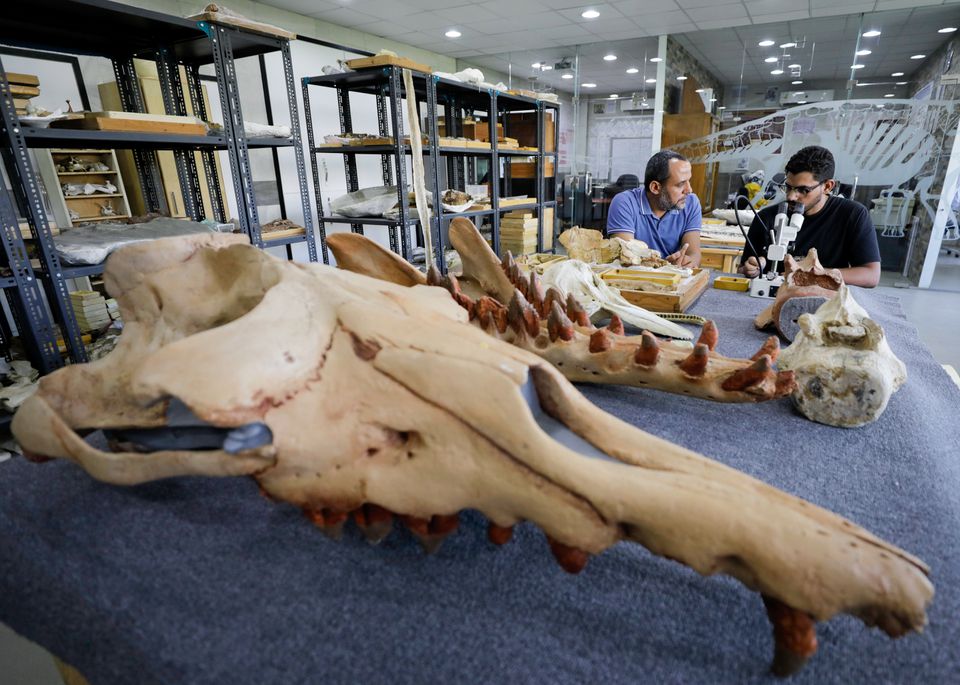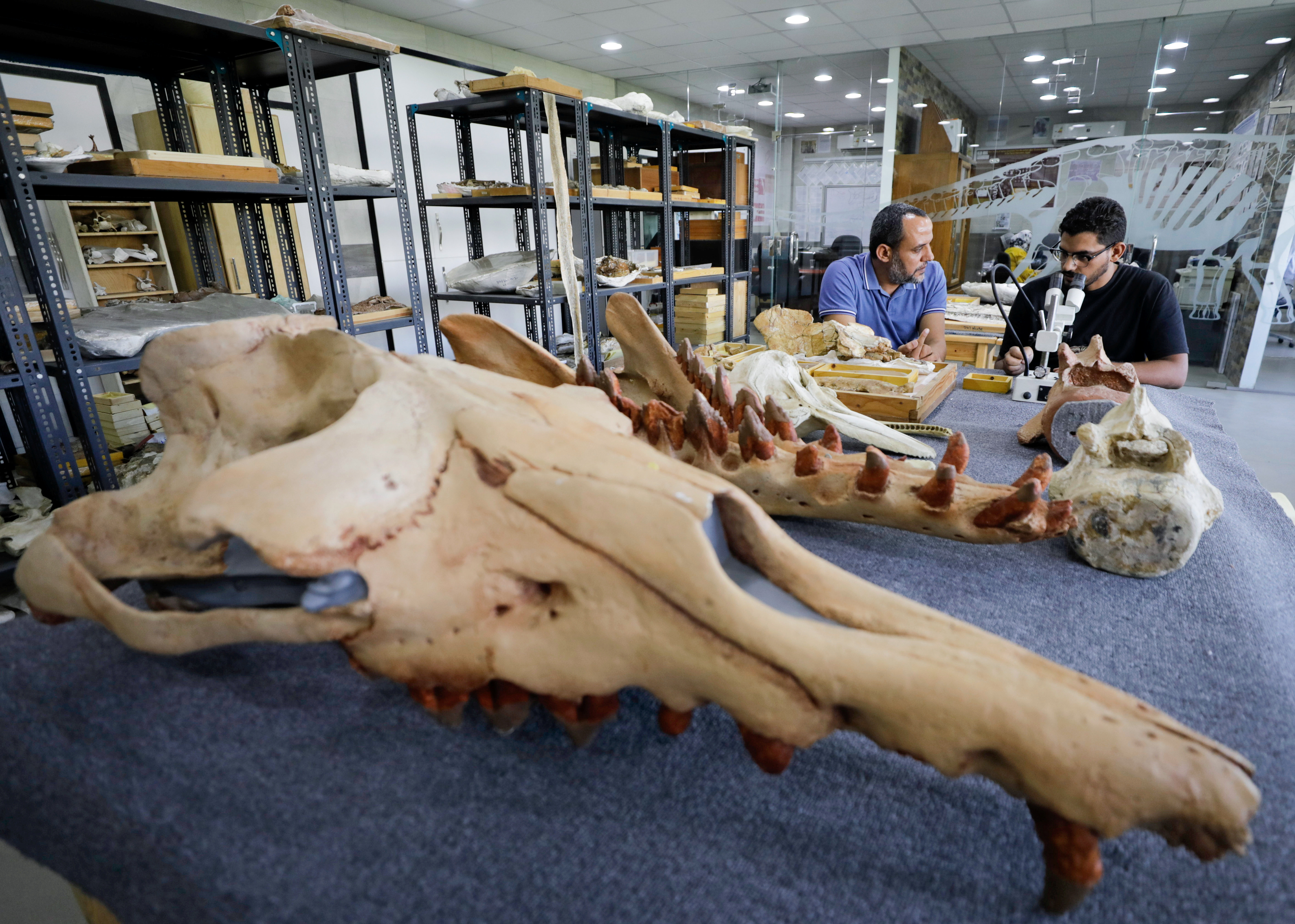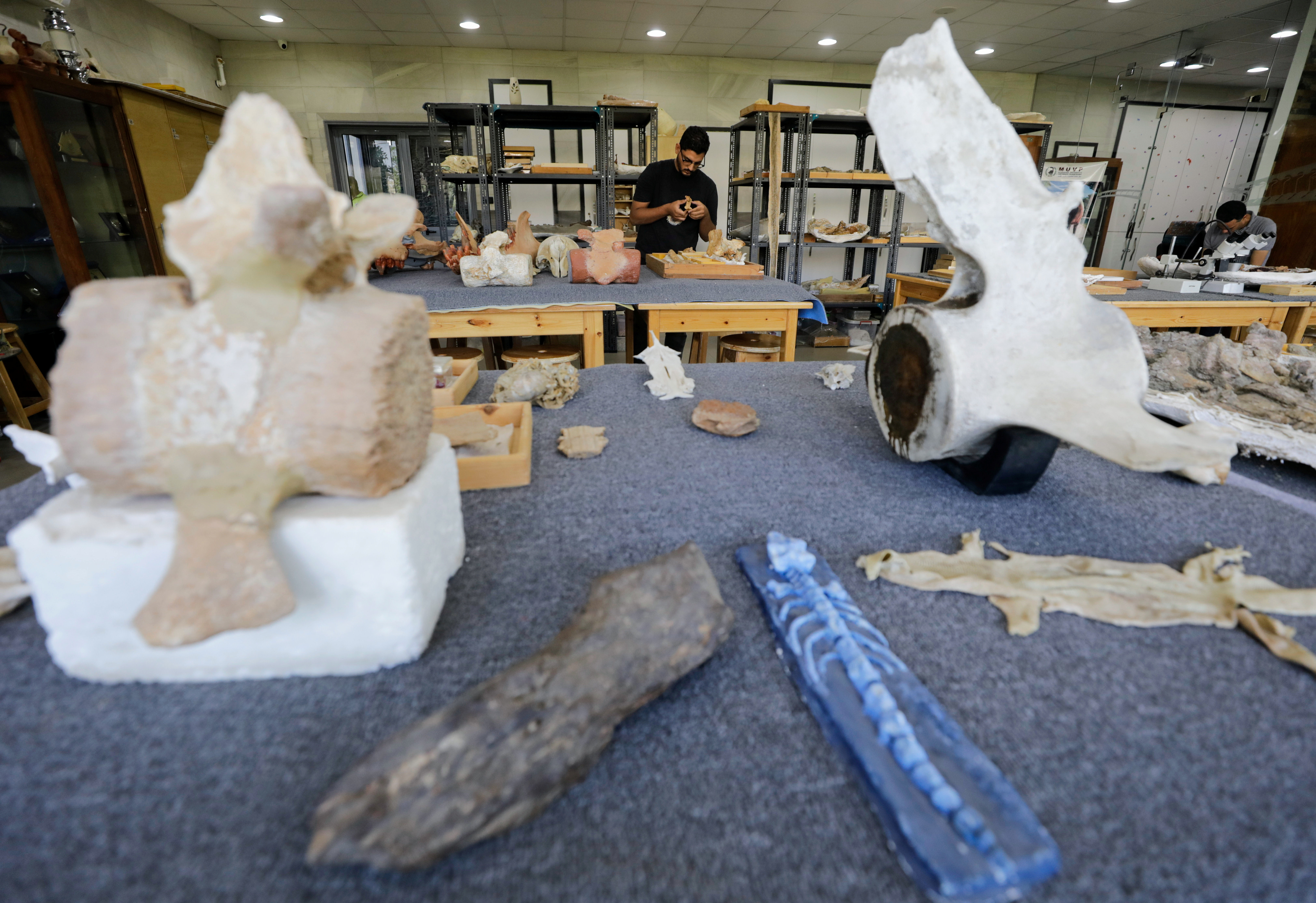 Abdullah Gohar, a researcher at El Mansoura, university works on renovating the 43 million-year-old fossil of a previously unknown four-legged amphibious whale called “Phiomicetus Anubis”, that helps trace the transition of whales from land to sea, which were discovered in the Fayum Depression in the Western Desert of Egypt, near the town of El Mansoura, north of Cairo, Egypt August 26, 2021. REUTERS/Mohamed Abd El Ghany – RC22DP96634K
Abdullah Gohar, a researcher at El Mansoura, university works on renovating the 43 million-year-old fossil of a previously unknown four-legged amphibious whale called “Phiomicetus Anubis”, that helps trace the transition of whales from land to sea, which were discovered in the Fayum Depression in the Western Desert of Egypt, near the town of El Mansoura, north of Cairo, Egypt August 26, 2021. REUTERS/Mohamed Abd El Ghany – RC22DP96634K
The newly discovered whale belongs to the Protocetidae, a group of extinct whales that falls in the middle of that transition, the Egyptian-led team of researchers said in a statement.
Its fossil was unearthed from middle Eocene rocks in the Fayum Depression in Egypt’s Western Desert — an area once covered by sea that has provided a rich seam of discoveries showing the evolution of whales — before being studied at Mansoura University Vertebrate Palaeontology Centre (MUVP).
The new whale, named Phiomicetus anubis, had an estimated body length of some three meters (10 feet) and a body mass of about 600 kg (1,300 lb), and was likely a top predator, the researchers said. Its partial skeleton revealed it as the most primitive protocetid whale known from Africa.



“Phiomicetus anubis is a key new whale species, and a critical discovery for Egyptian and African paleontology,” said Abdullah Gohar of MUVP, lead author of a paper on the discovery published in the journal Proceedings of the Royal Society B.
The whale’s genus name honours the Fayum Depression and species name refers to Anubis, the ancient canine-headed Egyptian god associated with mummification and the afterlife.
Despite recent fossil discoveries, the big picture of early whale evolution in Africa has largely remained a mystery, the researchers said. Work in the region had the potential to reveal new details about the evolutionary transition from amphibious to fully aquatic whales.
With rocks covering about 12 million years, discoveries in the Fayum Depression “range from semiaquatic crocodile-like whales to giant fully aquatic whales”, said Mohamed Sameh of the Egyptian Environmental Affairs Agency, a co-author.
The new whale has raised questions about ancient ecosystems and pointed research towards questions such as the origin and coexistence of ancient whales in Egypt, said Hesham Sellam, founder of the MUVP and another co-author.
–
More from Reuters
Read Next
-
Change Suite
Mystery of space inspired New Zealand rocket man’s journey to Nasdaq

Science · 2021 Aug 27 · 7:10 AM MDT
Mystery of space inspired New Zealand rocket man’s journey to Nasdaq
New Zealand entrepreneur Peter Beck said his space firm Rocket Lab was the result of a lifelong quest for signs of life outside earth, as the startup hit a new milestone with a recent Nasdaq listing.

Science
Thailand develops robotic system to squeeze out more vaccine doses

Science
Fossil of previously unknown four-legged whale found in Egypt
–

Science
Battery pioneer Akira Yoshino on Tesla, Apple and the electric future
–

Science
México City taps solar energy to clean up historic Aztec-era canals
–
–
–
(For the source of this, and many other equally intriguing and important articles, please visit: https://www.reuters.com/lifestyle/science/fossil-previously-unknown-four-legged-whale-found-egypt-2021-08-25/)








